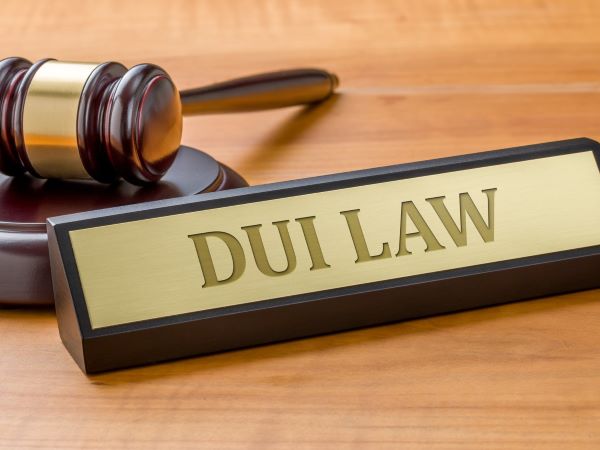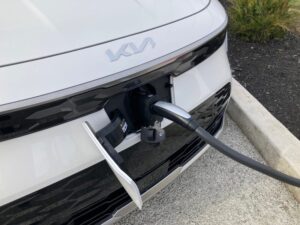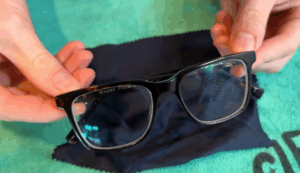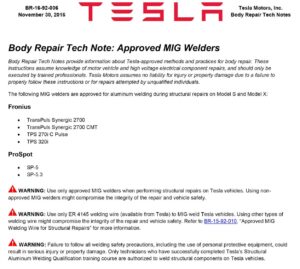Yes, you can get a DUI in a Tesla. Driving under the influence applies to all vehicles, even those with autopilot features.
Tesla cars are famous for their advanced technology and autopilot capabilities. Many wonder if these features mean you can avoid a DUI. But the law is clear. A DUI is possible if you’re impaired while in control of any vehicle.
Even with autopilot, you must stay alert. The car needs you to supervise its actions. This means you must be ready to take over the driving at any time. Understanding this is important for your safety and legal compliance. This post will explore how DUI laws apply to Tesla drivers and what you need to know to stay safe and legal on the road.
Dui Laws And Autonomous Vehicles
Imagine cruising down the highway in a Tesla, hands-free, while enjoying your favorite playlist. The future of driving is here, but it comes with legal questions. Can you get a DUI in a Tesla? As autonomous vehicles become more common, understanding DUI laws in this context is crucial.
Current Legal Framework
DUI laws were crafted when cars required human drivers for navigation. They focus on the driver’s ability to control the vehicle. However, autonomous vehicles challenge this notion. In most places, you can still be charged with a DUI even if your car has self-driving capabilities.
The law views the driver as responsible for ensuring the vehicle is operated safely. Tesla’s autopilot features are advanced but require your supervision. If impaired, your judgment is compromised, which can lead to legal consequences.
Challenges With New Technology
Autonomous vehicles are reshaping the driving landscape. They promise increased safety, but legal systems are playing catch-up. This creates challenges in defining who is responsible when a car is on autopilot.
Consider a scenario where an autonomous vehicle is involved in an accident. Who is to blame—the driver or the technology? This ambiguity complicates DUI laws. It raises questions about liability, especially when alcohol is involved.
As technology advances, lawmakers must adapt. Should DUI laws evolve to address autonomous driving? Your thoughts on this could influence future legislation. Are we ready for a world where technology reduces human error, but legal systems lag behind?
While enjoying the benefits of autonomous driving, stay informed about your local laws. Safety should always be your priority, regardless of technological advancements. Your vigilance can prevent legal headaches and ensure a smoother ride into the future.
Tesla’s Autopilot Features
When you think of Tesla, one of the first things that comes to mind is its cutting-edge technology. Tesla’s Autopilot features are a marvel, offering drivers a glimpse into the future of driving with advanced safety and convenience options. But can you let your guard down completely behind the wheel? Let’s dive into how Autopilot works and its limitations.
How Autopilot Works
Tesla’s Autopilot is designed to assist you in driving, not replace you. It uses a combination of cameras, sensors, and radar to detect surrounding traffic and road conditions. The system can steer, accelerate, and brake automatically within its lane.
Imagine cruising down a highway with the car maintaining a safe distance from others and adjusting speed effortlessly. It’s like having a co-pilot who never tires. But remember, you must stay alert and ready to take control at any moment.
Limitations Of Autonomy
While Autopilot can handle many driving tasks, it’s not infallible. It struggles with complex environments like construction zones or roads without clear markings. You need to be cautious in situations where the system might not perform optimally.
Consider times when roads are slippery or visibility is poor. Autopilot might not make the best decisions, and you’ll need to step in. Have you ever found yourself in a situation where technology failed you? These moments highlight the importance of human intervention.
So, can you get a DUI in a Tesla? Autopilot doesn’t absolve you of responsibility. You must be sober and attentive, ready to steer your course. What does this mean for you? Trust the tech, but always verify with your own judgment.
Dui Definition And Criteria
Driving under the influence, or DUI, is a serious offense. It involves operating a vehicle while impaired by alcohol or drugs. Even in a Tesla, DUI laws apply. Understanding DUI criteria helps avoid legal issues.
Legal Standards For Impairment
Legal standards define impairment levels. Blood alcohol content (BAC) is a key measure. A BAC of 0.08% or higher usually means impairment. But even lower levels can lead to DUI charges. Other factors may include drug use or visible impairment signs.
Law enforcement checks for impairment signs. Slurred speech, poor coordination, or erratic driving are examples. These signs help determine if someone is legally impaired. Being in a Tesla does not change these standards.
How Dui Is Determined
Officers use various methods to determine DUI. Breathalyzers measure BAC levels. Field sobriety tests assess physical coordination. Officers observe behavior and speech patterns. These methods help identify impairment.
Driving a Tesla does not exempt anyone from these checks. The vehicle’s technology might not protect from DUI charges. Being aware of DUI criteria is vital for all drivers. Understanding these standards helps ensure safe driving.
Credit: mycarheaven.com
Cases Involving Tesla Vehicles
Tesla vehicles are known for their advanced technology and autonomous driving features. This has sparked legal debates about DUI charges in autonomous cars. Understanding these cases can help clarify legal boundaries.
Notable Legal Cases
Several high-profile cases have involved Tesla vehicles and DUI charges. In one case, a driver was asleep in a moving Tesla on autopilot. Police charged him with DUI after stopping the vehicle. Another case involved a driver claiming the car was driving itself during a DUI arrest. These cases challenge traditional DUI definitions.
Outcomes And Precedents
The outcomes of these cases have varied. In some instances, courts have upheld DUI charges. They argue that drivers must remain alert, even with autopilot engaged. Other cases have seen reduced charges. They consider the role of autonomous technology in driving. These cases are setting precedents for future legal interpretations.
Legal Interpretations And Variations
Driving under the influence (DUI) laws vary widely across regions. With the advent of self-driving technology, legal interpretations face new challenges. Tesla’s Autopilot raises questions about DUI liability. Can you get a DUI in a Tesla? It depends on where you are and the law’s interpretation. Let’s explore the legal variations.
State-by-state Differences
In the United States, DUI laws differ by state. Some states hold drivers accountable, even with autonomous tech. Others may have lenient interpretations if the car is in self-driving mode. In California, for example, the driver must remain engaged and attentive. It doesn’t matter if the car is on Autopilot. In contrast, states like Nevada may have different views. They might consider the level of control you have over the vehicle.
International Perspectives
Globally, DUI laws also vary widely. In the UK, self-driving technology doesn’t absolve DUI liability. The driver remains responsible, regardless of Autopilot use. Countries like Germany emphasize driver readiness. The law requires you to take control if needed. Meanwhile, some regions have yet to address this technology in their laws. Legal adaptations are ongoing as technology evolves.

Credit: www.fleetmanagementweekly.com
Ethical Considerations
Driving a Tesla can still lead to a DUI charge. Autonomous features don’t replace a driver’s responsibility. Ethical considerations arise as technology advances, questioning accountability and safety standards in self-driving vehicles.
Driving a Tesla can feel like stepping into the future. With its advanced technology and autopilot features, it raises intriguing ethical questions. Can you still be held accountable for a DUI if the car drives itself? The ethics of operating a semi-autonomous vehicle are complex. They force us to think about responsibility and public safety in new ways.Responsibility And Accountability
Even if your Tesla can drive itself, you’re still the one in charge. Imagine letting your guard down, believing the car will handle everything, only to face a DUI charge. You might think autopilot means less responsibility, but the law sees it differently. You’re accountable for the vehicle’s actions, whether you’re steering or not. Consider how this impacts decision-making. If you’re in a state to drive, should you rely on autopilot? Or does it make you complacent? It’s crucial to remember that trust in technology doesn’t eliminate your duty to be alert and responsible.Impact On Public Safety
How does a DUI in a Tesla affect those around you? The promise of self-driving cars is enhanced safety. But if you’re impaired, the risk remains. Even with autopilot, accidents can happen. What if the technology fails? Your safety, and the safety of others, depends on your vigilance. Think about the message it sends. Are we ready to depend on machines for safety? It’s a pivotal question. As drivers, you must balance the convenience of technology with the responsibility it demands. Your choices can ripple through society, influencing public perception and safety standards. The ethical considerations of driving a Tesla are more than theoretical. They’re practical decisions you face every day. How will you navigate this new terrain?Future Of Dui Laws With Autonomous Cars
The rise of autonomous vehicles brings fresh challenges to DUI laws. As cars gain more self-driving features, the legal landscape must adapt. The question arises: can you be charged with a DUI in a Tesla or any autonomous car? This topic sparks debates about responsibility and safety. Understanding potential changes in DUI laws is crucial for drivers and lawmakers.
Potential Legal Reforms
Legal reforms might focus on defining driver responsibility. If a car drives itself, is the passenger liable for DUI? This question might lead to new legal standards. Lawmakers may need to differentiate between fully autonomous and semi-autonomous vehicles. The responsibility of the passenger becomes a key issue. Some propose laws that focus on the ability to take control. Others suggest monitoring sobriety even in self-driving modes.
Role Of Technology Advancements
Technology advancements in autonomous cars influence DUI laws. Tesla’s autopilot features highlight this impact. Improved sensors and AI might reduce DUI risks. These advancements could lead to changes in enforcement methods. Some suggest integrating sobriety checks within the vehicle systems. Others explore using AI to track driver behavior patterns. As technology evolves, laws must keep pace. Ensuring safety while embracing innovation is vital.

Credit: bestsellingcarsblog.com
Public Opinion And Perception
Driving a Tesla doesn’t exempt you from DUI charges. Even with autopilot, you’re responsible for safe operation. Public opinion varies, but legal accountability remains constant regardless of vehicle technology.
Public opinion and perception of getting a DUI in a Tesla are evolving in interesting ways. As more Teslas hit the road, people are buzzing about what it means to drive—or not quite drive—one. The conversations often revolve around how much control the Autopilot feature actually provides and its implications for legal responsibility.Public Understanding Of Autopilot
Many people believe Tesla’s Autopilot means you can sit back and relax without touching the wheel. However, this is a misconception. Tesla clearly states that drivers must remain attentive and ready to take over at any moment. Imagine relying too heavily on Autopilot during your commute. You might start to think your car is smarter than it really is. Would you risk dozing off or even enjoying a few drinks, thinking Autopilot has your back? Here’s a wake-up call: Autopilot is a driver-assist feature, not a substitute for you. Public understanding needs to catch up with reality.Influence On Legal Attitudes
Public perception influences legal attitudes, often driving changes in law and enforcement. If people think Autopilot allows for hands-free driving, they might assume DUI laws don’t apply. However, legal systems are catching on and adapting. Courts are beginning to treat Tesla drivers just like any other drivers under the influence. Consider this: how will law enforcement handle a future where cars do more of the driving? Will DUI laws evolve, or will drivers still face the same penalties? Your views on Autopilot and DUI laws might shape the future conversation. What do you think? Should laws adapt to accommodate new technology, or should human responsibility remain constant?Frequently Asked Questions
Can You Still Get A Dui In A Tesla?
Yes, you can still get a DUI in a Tesla. Autonomous features don’t exempt drivers from DUI laws. Always remain responsible and sober behind the wheel.
Can You Be Charged With Dui In A Self-driving Car?
Yes, you can be charged with DUI in a self-driving car. Laws hold the driver responsible, even if the vehicle is autonomous. State regulations vary, so check local laws for specifics. Always prioritize safety and avoid driving under the influence, regardless of vehicle technology.
What Vehicle Is Most Likely To Get A Dui?
Pickup trucks are most likely to be involved in DUI incidents. They are followed by SUVs and sedans. This trend may be due to higher ownership rates in certain demographics. Always prioritize safety and avoid driving under the influence.
Can You Work At Tesla With A Dui?
Yes, you can work at Tesla with a DUI, but it depends on the position and company policy. Each case is reviewed individually. Contact Tesla’s HR for specific requirements and potential restrictions related to your role.
Conclusion
Driving a Tesla doesn’t exempt you from DUI laws. Always stay alert. Autonomous features are helpful but require your attention. Legal consequences remain serious, even in advanced vehicles. Safety should always come first. Understand the responsibility of being behind the wheel.
Technology is impressive, yet not foolproof. Stay informed about the rules and regulations. Remember, a safe journey benefits everyone on the road. Make wise choices when driving. Enjoy your Tesla responsibly and ensure safety for all.


